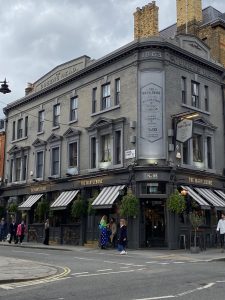Do any of the following questions apply to you?

- Do you need to release equity from your commercial property?
- Are you struggling to meet your financial commitments?
- Are you looking to relocate?
- Are you faced with having your property repossessed?
- Do you want to sell your property but remain in occupation (sale and rent back)?
- Do you need to sell in order to buy elsewhere?
- Has managing your property become too much of a struggle?
- Are you looking for commercial ‘bridging’ or mortgage finance?
- Is your tenant struggling and about to go out of business?
Should any of these apply, please submit our online Property Information Form without any obligation.
Shops
Banks can be found on most high streets ranging from small ground floor units to large buildings spread over several floors. They have historically paid high rents and taken long leases which has been attractive to property owners/investors. However, as on-line banking has grown in popularity, banks have reduced their presence on high streets by either closing branches or reducing their size of the units they occupy which has had a catastrophic impact on those who own these properties. As the leases on these banks come to an end, landlords scurry around frantically trying to persuade their tenants to extend their leases. Failing that, they try to find alternative tenants. When they realize that both options are difficult, and at times what appears to be impossible to achieve, and in order to rid themselves of the rates liabilities which owners must pay when their commercial properties are vacant, they look to sell their banks to commercial property investors.
Just like with banks, building societies have a vast portfolio on most prime and secondary shopping streets throughout the UK. Although they tend to occupy units smaller than banks, the likes of Nationwide, Yorkshire, Chelsea etc can be seen almost everywhere. The same problems which face those who own commercial properties let to banks also exist with those who own properties let to building societies although in some cases the problems are worse with the latter as some building society branches are located in very secondary locations and in very small villages where the prospects of finding replacement tenants are extremely low.
The travel agency industry has suffered immensely over the past two years as a result of lockdown which was brought in to combat the spread of coronavirus. This industry recently received a further blow as inflation has pushed up the cost of holidays to an all-time high which many can no longer afford, especially those who have struggled to pay their bills. Furthermore, those who were able to take holidays spent less time visiting high street travel agencies and more time booking their holidays online. Therefore, the UK has recently seen a wave of shops becoming vacant as travel agencies went into administration and those who survived by the skin of their teeth closed hundreds of their high street shops. Just before the pandemic, Thomas Cook, who was the largest travel agency in the UK with the largest number of high street shops, collapsed and was forced to close 600 of their units. This wave of closures has hit the high street hard and contributed to the growing number of vacant high street shops throughout the UK which landlords are finding extremely difficult, and in some cases impossible, to re-let.
If you walk along an average UK high street, the one thing you will notice is the vast number of estate agencies who are all fighting for the same business. This over-supply came about as a result of the housing boom which started in the late 1990’s and in some areas, such as Hampstead, an affluent suburb in north-west London, there are as many as 12 estate agents, all within a 1 minute walk of each other. Chains such as Foxtons and Anscombe & Ringland have grown rapidly over the years and made it their business to open as many branches as they possibly can. However, as the housing market faded, and the recent recession started, most estate agencies found themselves with nothing to do. This led to many estate agents trying to sell their businesses, closing branches and going into administration/liquidation leading to more vacant shops appearing throughout the UK. This in turn led landlords of these commercial properties desperate to sell and many had their properties repossessed by banks as they lost their income and could no longer pay interest on their loans. Today, we are still seeing people trying to sell vacant properties which only a few years ago were occupied by thriving estate agents. Sell My Commercial Property buys estate agents and have been involved in several such deals over the years.
The beauty industry is one which is heavily reliant on a booming economy. In times like these, where people can no longer afford to treat themselves to extravagancies, businesses like beauty salons who are unable to adapt and change with the times cannot survive. Where they do, they need to reinvent themselves and for example change from a beauty salon which provides all different therapies such as facials, massages, botox treatments etc to one which for example simply does nails. An owner of a beauty salon who also owns the freehold of their property and who wants to sell their business will stand a far greater chance than someone who is simply a tenant as in many cases the businesses do not have a value and so the only way for them to find a buyer is to sell the commercial property. In some cases, they may wish to sell the property and stay in occupation by way of a lease. This is commonly referred to as a sale-and-lease-back and enables a commercial property owner who runs their business from their property to sell, use the money to pay off any loans, mortgages and other debts and stay in the property running their business.
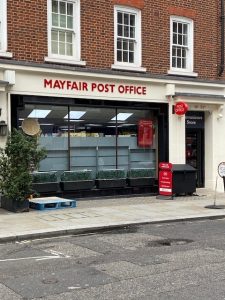 There have been many post office closures over recent years and still more to come. In the 1960’s, there were 25,000 post offices in the UK but the number today stands at around 11,000. In 2011, nearly 5 were closing every week as sub-postmasters retired and found it difficult to make a profit. The main reason for this is that there were too many open in the first place. Contracts for handling payments for TV licences, utility bills, benefits etc were taken from post offices and given to banks and other organisations. As a result of this, post office franchisees have tried to sell their businesses but without much success. Those who have been able to sell have been those who own the commercial property from which they also run their post office business. Those who are tenants have tried to sell their businesses but without much success. Buyers for post offices are few and far between. Some post offices are quite large in size, and so too expensive for small investors to handle whilst others are located in small villages where demand from alternative occupiers is very limited. Therefore those who buy commercial property which are post offices are difficult to find. Sell My Commercial Property have been involved in several post office transactions as this is a market which we understand.
There have been many post office closures over recent years and still more to come. In the 1960’s, there were 25,000 post offices in the UK but the number today stands at around 11,000. In 2011, nearly 5 were closing every week as sub-postmasters retired and found it difficult to make a profit. The main reason for this is that there were too many open in the first place. Contracts for handling payments for TV licences, utility bills, benefits etc were taken from post offices and given to banks and other organisations. As a result of this, post office franchisees have tried to sell their businesses but without much success. Those who have been able to sell have been those who own the commercial property from which they also run their post office business. Those who are tenants have tried to sell their businesses but without much success. Buyers for post offices are few and far between. Some post offices are quite large in size, and so too expensive for small investors to handle whilst others are located in small villages where demand from alternative occupiers is very limited. Therefore those who buy commercial property which are post offices are difficult to find. Sell My Commercial Property have been involved in several post office transactions as this is a market which we understand.
Due to competition from supermarkets and department stores, and the openings of large out-of-town units operated by the likes of Boots, independent high street pharmacies have been unable to stay open and have had to shut shop. This pattern of high street retailers closing down due to their business being taken away by larger national multiples is getting more and more common. Other problems which have led to this wave of shop closures includes problems parking, high rates bills which occupiers must pay, affordable rents and the cost of goods which smaller retailers are unable to drive down. These pharmacies, which were once extremely profitable businesses, are now finding is hard to stay alive.
Sell My Commercial Property will buy cinemas ranging from small independent cinemas to multiplexes. The former are of interest as some present redevelopment opportunities and the latter are of interest as they provide secure income streams.
In the 1970’s, there were nearly 38,000 petrol stations in the UK. Now, there are only about 9,000. Nearly 5,500 petrol stations have closed over the past 10 years and replaced by convenience stores, other retail stores and residential developments. Again, supermarkets have caused a wave of petrol station closures in addition to crippling overheads. Who buys petrol stations? Sell My Commercial Property does.
Small high street supermarkets/minimarkets/convenience stores as well as large out-of-town superstores are of interest to us to buy. It is not just those located on busy high streets which have long leases and let to good covenants like Tesco, Budgens, Nisa etc which are of interest due to the secure income they offer but we are also interested in others with short leases and occupied by lesser well known names. The convenience store industry is experiencing a relatively strong period of growth at present although they are still many high street stores which run this type of business who are finding things hard. If you are a landlord and have a shop which is occupied by one of these operators, we would be pleased to hear from you as Sell My Commercial Property are very strong at buying commercial property let to foodstores.
Parades of shops anywhere in the UK are of particular interest to Sell My Commercial Property, especially those which have residential flats above shops which are not sold-off on long leases. We will look at single shops or entire parades comprising several units. AT times, these are difficult to manage for landlords as the commercial and residential elements need to be dealt with separately which can at times be very management intensive in terms of time and cost. We have the expertise to deal with these types of properties and so would be pleased to hear from you.
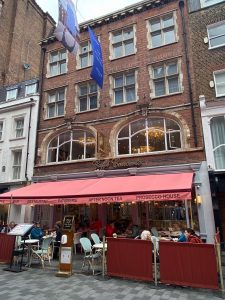 The restaurant industry has always been quite resilient in tough economic times although the latest recession has seen a wave of restaurant failures including Tootsies, Little Chef, Fishworks, Town Centre Restaurants, AWT (Anthony Worrall Thompson) etc. Although we will always need to eat, and eating out has become one of our favourite social past times, the restaurant industry has taken a real blow. As the rents these restaurants pay are higher than standard shop rents, if a restaurant fails, and the landlords has to find a new tenant, the rent which the new tenant pays, assuming one can be found, will more than likely be dramatically less than the rent the restaurant operator was paying. This will have a negative impact on the value of the property and in some cases lead to a breach of the commercial loan. Those who buy restaurants are difficult to find as it is quite a specialist market but we like this sector and have the experience to manage a commercial property let to a restaurant, even if the future looks bleak.
The restaurant industry has always been quite resilient in tough economic times although the latest recession has seen a wave of restaurant failures including Tootsies, Little Chef, Fishworks, Town Centre Restaurants, AWT (Anthony Worrall Thompson) etc. Although we will always need to eat, and eating out has become one of our favourite social past times, the restaurant industry has taken a real blow. As the rents these restaurants pay are higher than standard shop rents, if a restaurant fails, and the landlords has to find a new tenant, the rent which the new tenant pays, assuming one can be found, will more than likely be dramatically less than the rent the restaurant operator was paying. This will have a negative impact on the value of the property and in some cases lead to a breach of the commercial loan. Those who buy restaurants are difficult to find as it is quite a specialist market but we like this sector and have the experience to manage a commercial property let to a restaurant, even if the future looks bleak.
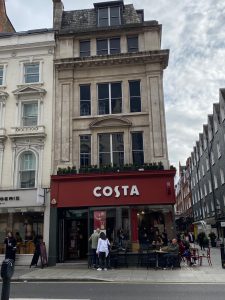 Sandwich bars can range from small independent units in small, quaint villages to major retail stores in prime central London locations. Rents these occupiers pay can be anything from £2-3,000 per annum to £2-300,000 per annum. The likes of Subway, Pret-a-Manager, Eat, Baguette Express etc have experienced rapid growth over the past decade as people have turned away from the more traditional and expensive restaurant towards the cheaper and more convenient fast food joint.
Sandwich bars can range from small independent units in small, quaint villages to major retail stores in prime central London locations. Rents these occupiers pay can be anything from £2-3,000 per annum to £2-300,000 per annum. The likes of Subway, Pret-a-Manager, Eat, Baguette Express etc have experienced rapid growth over the past decade as people have turned away from the more traditional and expensive restaurant towards the cheaper and more convenient fast food joint.
Drive-thrus are interesting as a result of the plot of land on which they sit. However, it is both time consuming and expensive to redevelop these plots and a great deal of expertise is required. Sell My Commercial Property would be interested to buy more drive-thrus where we would not only be happy to collect the income, if there were not any redevelopment opportunities, but also happy to take on complicated planning projects.
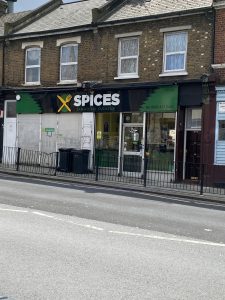 Investments lets to take-aways are not everyones cup of tea as the lots sizes are usually quite small. Furthermore, the number of take-away deals on offer let to household names like Dominos, Pizza Hut, Burger King, Harry Ramsdens etc are few and far between and most commercial properties let to take-away operators are occupied by sole traders. We are very strong in this field and are keen to buy more take-aways, especially if they have flats above which are occupied by way of short leases.
Investments lets to take-aways are not everyones cup of tea as the lots sizes are usually quite small. Furthermore, the number of take-away deals on offer let to household names like Dominos, Pizza Hut, Burger King, Harry Ramsdens etc are few and far between and most commercial properties let to take-away operators are occupied by sole traders. We are very strong in this field and are keen to buy more take-aways, especially if they have flats above which are occupied by way of short leases.
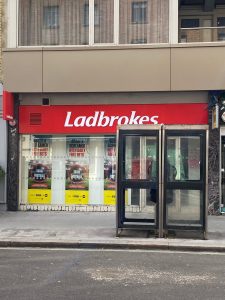 We have bought many retail premises let to betting shops and wish to buy more, despite the likes of Ladbrokes and Coral announcing this year (2021) that they will be closing hundreds of shops as people turned to gambling online. Coral, Ladbrokes, William Hill, Tote, Betfred and Paddy Power, as well as other smaller independent operators, are all of interest to us. No matter what the size, or where they are, if you own a commercial property you wish to sell which is occupied by a betting shop, then call us today. Many betting shops are in secondary/tertiary locations so when they become vacant, landlords find it very hard to find new tenants.
We have bought many retail premises let to betting shops and wish to buy more, despite the likes of Ladbrokes and Coral announcing this year (2021) that they will be closing hundreds of shops as people turned to gambling online. Coral, Ladbrokes, William Hill, Tote, Betfred and Paddy Power, as well as other smaller independent operators, are all of interest to us. No matter what the size, or where they are, if you own a commercial property you wish to sell which is occupied by a betting shop, then call us today. Many betting shops are in secondary/tertiary locations so when they become vacant, landlords find it very hard to find new tenants.
The reason why we like laundrettes is that they are one of a very few businesses which cannot be replicated over the internet – well not for now anyway! There will always be a demand for laundrettes and even though they are not the most dynamic businesses, and the properties they occupy very rarely go up that much in value, they are safe, secure and relatively trouble free.
Sell My Commercial Property even buys pet shops. Again, we would look at any location no matter how small. Most commercial property investors will not show any interest in this type of investment as they see it as being unexciting with no prospects of rental or capital growth. That may be the case but we look at everything on its individual merits. If you want to sell your pet shop, and have any questions, why not call us today.
Retail warehouses and retail warehouse parks present very exciting commercial property investment opportunities. These places are easy to park, offer a good range of retail stores, have a large product offer because of their size and are conveniently located. As they are very large in size, most investors cannot afford to look at them. Individual units can cost around £2-5m and entire parks can be as much as £200m. We would look at anything in this field so please do not hesitate to contact us if you own any such asset or know someone who does who you think may consider selling.
These opportunities very rarely come up but when they do, you find the very large investors (property companies, pension funds, institutions, overseas buyers etc) chasing after them as they offer all different types of strategies. You can collect the income from a single tenant, take a surrender of the lease and break-up the store into several smaller ones, change the use and convert it into an office, hotel, residential or other uses or demolish it and rebuild an entirely new scheme. We would look at large city centre department stores or the smaller ones you find on high streets. Mass department store closures over the past few years has been all over the news. The commercial property information company CoStar reported that over the last five years, the UK lost 86% of its department stores, starting with the collapse of Bhs in 2016 and ending most recently (2021) with the closure of Debenhams. Despite these closures, we at Sell My Commercial Property would still buy department stores as we have the skill and expertise to asset manage them which takes a great deal of time, effort and investment.
These assets are usually very large in size and comprise a cinema, bowling alley, several restaurants etc. They are quite ‘dry’ in the sense that all you can really do with them is collect the income from the tenants. However, we would look at these types of deals no matter how big.
 These are probably the largest of all the retail sub-sectors and can range from small town centre schemes to huge out-of-town centres. They present a plethora of active management opportunities and require a huge amount of money, bank funding, a large team, a great deal of time and a lot of experience to buy and deal with them.
These are probably the largest of all the retail sub-sectors and can range from small town centre schemes to huge out-of-town centres. They present a plethora of active management opportunities and require a huge amount of money, bank funding, a large team, a great deal of time and a lot of experience to buy and deal with them.
Although this is one of the most risky retail sub-sectors, we have bought, and will continue to buy, nightclubs if the deal is right. They are very much out of favour with most commercial property buyers but we will look at these opportunities very carefully.
This is a very specialist area buy nevertheless still of interest to us. The large sizes of these properties means they offer exciting redevelopment opportunities but again this will take a lot of time, require a large injection of capital and only be of interest to those who have the expertise to deal with complicated planning matters.
Offices
Small offices, in the region of 1-3,000 sq ft, which are usually owned by individuals and SME’s, can usually be found in town and city centres and on small office parks. These small lots, whether old or new, regardless of condition, are always of interest to Sell My Commercial Property to buy, especially if they are gated, have car parking and comprise air conditioning. There are many of these buildings throughout the UK which are currently for sale where the owners, who once occupied them, are struggling to make a living and desperate to raise equity.
 Large offices, of circa 100,000 sq ft +, which are either vacant, part let or fully let, are also of interest to us to buy. Buildings which are of particular interest are those which are rectangular in shape, have windows on both sides, good floor to ceiling heights, good car parking and are situated close to tube and/or british rail stations. Most buildings of this nature are owned by commercial property companies and occupied by several tenants on conventional leases.
Large offices, of circa 100,000 sq ft +, which are either vacant, part let or fully let, are also of interest to us to buy. Buildings which are of particular interest are those which are rectangular in shape, have windows on both sides, good floor to ceiling heights, good car parking and are situated close to tube and/or british rail stations. Most buildings of this nature are owned by commercial property companies and occupied by several tenants on conventional leases.
Individual offices, as opposed to multiple offices on a single business park, regardless of their size, shape or condition, are of interest to us if you are looking to sell your office property.
Office complexes, where there are 2 or more buildings on a single development, are of particular interest to us to buy. In these developments, some units are owner-occupied, in other words they are owned and occuiped by the same company, some companies own just one individual unit as an investment and rent it to a separate company and in some cases, multiple units are owned by the same company as an investment and the owner rents the units to the same company or different companies. These complexes, which are commonly referred to as business parks, can also be under one ownership.
Over the last few years, serviced offices have become a popular alternative to conventional offices. In a serviced office, a tenant can sign a short licence agreement, instead of a lengthy and complicated lease, can move into the office immediately without any of the delays associated with conventional offices, can take an office which is fully furnished as opposed to having to fit it out and can sign an agreement for a short period of time, as little as 3 months, instead of having to sign for 5-10 years. Although serviced offices are popular amongst not only occupiers but also investors, they are very difficult to manage, can at times run at high vacancy levels which impacts negatively on the owners cash flow and the short and unsecure nature of the income makes it difficult for owners to sell and use the asset to raise equity. We at Sell My Commercial Property have owned and managed many serviced offices over the years and as a result of our experience and expertise, are keen to buy more.
We would be keen to buy educational centres such as schools, colleges, universities etc as either investments or to develop.
Industrial
 Storage units became a popular business in the 1990’s as a result of the residential property boom. The likes of Big Yellow, Safe Store, Access Storage etc sprung up all over the country. As these companies grew, and became profitable, the properties which they occupied increased in value. Storage units are still popular amongst investors who are looking for a relatively risk free investment.
Storage units became a popular business in the 1990’s as a result of the residential property boom. The likes of Big Yellow, Safe Store, Access Storage etc sprung up all over the country. As these companies grew, and became profitable, the properties which they occupied increased in value. Storage units are still popular amongst investors who are looking for a relatively risk free investment.
 Distribution units are basically very large warehouses which are used to store all types of goods. These can belong to the likes of Asda, Tesco or Boots or much smallers concerns. Values of these types of properties compared to others are usually very low due to their size.
Distribution units are basically very large warehouses which are used to store all types of goods. These can belong to the likes of Asda, Tesco or Boots or much smallers concerns. Values of these types of properties compared to others are usually very low due to their size.
 A warehouse is a generic terms which covers most types of industrial properties.
A warehouse is a generic terms which covers most types of industrial properties.
 Factories usually cover properties which contain machinery used to manufacture all different types of goods.
Factories usually cover properties which contain machinery used to manufacture all different types of goods.
Residential
Sell My Commercial Property would buy detached, semi-detached, link-detached and terraced houses as well as bungalows. We would buy throughout the UK and in any condition. We would buy single units as well as large portfolios.
Flats are also of interest to us to buy. Again, we would buy anything, anywhere in the UK. A buyer of flats needs to be careful as some are being sold with very short leases which makes borrowing money impossible. Furthermore, if you need to extend the lease, to raise money and/or to sell, you will need to pay the freeholder.
Sites with or without planning permission are of special interest to us, especially in locations with a London postcode. If you buy a site without planning, and try to obtain consent, beware of the difficulties such as the cost of instructing an architect and planning consultant, the time it may take you to get consent, the cost involved in making a planning applucation, the indirect taxes you will need to pay such as CIL, Mayoral tax, section 106 agreements etc.
Commercial properties, such as offices, warehouses, schools, petrol stations, sites etc which can be converted to residential are also of interest to us to buy.
We buy houses and flats which are occupied by sitting tenants. These can be regulated tenancies or assured tenancies which are also known as protected tenancies. This is where a tenant has been in occupation for many years and is legally entitled to stay in the property for life under a statutory or contractual tenancy and pays an open market rent which is set by agreement or by the rent tribunal. Generally, a tenancy which was granted before 15th January 1989 is governed by the Rent Act 1977. These tenancies can be furnished or unfurnished.
We buy houses and flats which are occupied by sitting tenants. These can be regulated tenancies or assured tenancies which are also known as protected tenancies. This is where a tenant has been in occupation for many years and is legally entitled to stay in the property for life under a statutory or contractual tenancy and pays an open market rent which is set by agreement or by the rent tribunal. Generally, a tenancy which was granted before 15th January 1989 is governed by the Rent Act 1977. These tenancies can be furnished or unfurnished.
We buy houses and flats which are occupied by sitting tenants. These can be regulated tenancies or assured tenancies which are also known as protected tenancies. This is where a tenant has been in occupation for many years and is legally entitled to stay in the property for life under a statutory or contractual tenancy and pays an open market rent which is set by agreement or by the rent tribunal. Generally, a tenancy which was granted before 15th January 1989 is governed by the Rent Act 1977. These tenancies can be furnished or unfurnished.
We buy houses and flats which are occupied by sitting tenants. These can be regulated tenancies or assured tenancies which are also known as protected tenancies. This is where a tenant has been in occupation for many years and is legally entitled to stay in the property for life under a statutory or contractual tenancy and pays an open market rent which is set by agreement or by the rent tribunal. Generally, a tenancy which was granted before 15th January 1989 is governed by the Rent Act 1977. These tenancies can be furnished or unfurnished.
